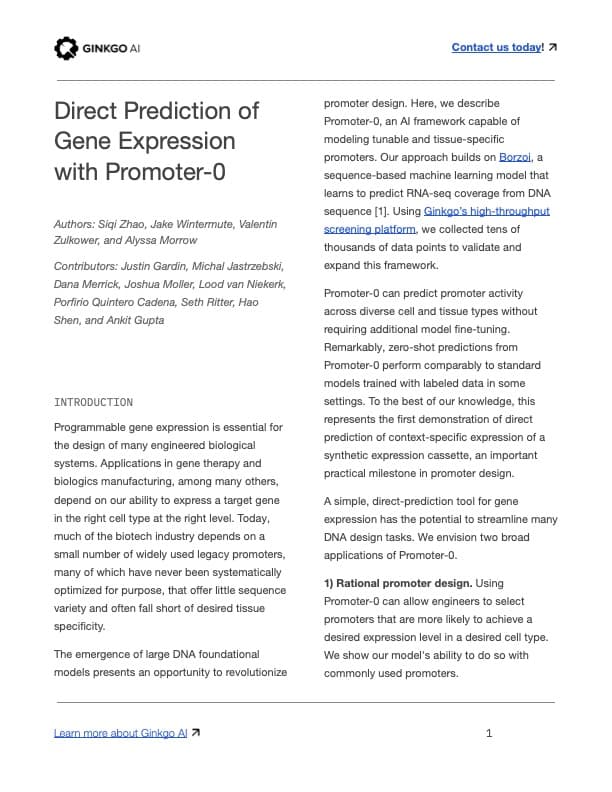Ginkgo.Your Innovation Partner.


The emergence of large DNA foundational models presents an opportunity to revolutionize promoter design. Here, we describe Promoter-0, an AI model capable of generating tunable and tissue-specific promoters. Our approach builds on Borzoi, a sequence-based machine learning model that learns to predict RNA-seq coverage from DNA sequence [1]. Using Ginkgo’s high-throughput screening platform, we collected tens of thousands of data points to validate and expand this framework.
Promoter-0 can predict promoter activity across diverse cell and tissue types without requiring additional model fine-tuning. Remarkably, zero-shot predictions from Promoter-0 perform comparably to standard models trained with labeled data in some settings. To the best of our knowledge, this represents the first demonstration of direct prediction of context-specific expression of a synthetic expression cassette, an important practical milestone in promoter design.